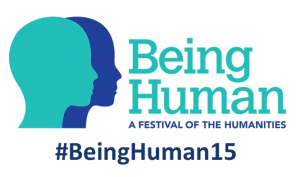Dr Abbe Brown, Reader, introduces her 20 November event “Careful what we wish for? Clashing laws, energy and society”.
I am leading this event as part of the UK wide Being Human Festival. Aberdeen is a festival “Hub” and there is plenty going on. This is a fantastic opportunity for academics to engage with the wider community, to present their research and be challenged in respect of it.
A key theme throughout my work is that so many legal fields and forms of regulation can be relevant to a contemporary legal challenge – but often there is limited awareness of it. Say, addressing climate change might involve climate change, human rights, technology and trade. Within this, courts, lawyers, activists and policymakers often explore one particular issue – the one which is of interest to them, or which they are set up to consider – with others not being considered relevant. (Similar issues can arise in other areas of law, for example in respect of succession, as explored by my colleague and fellow-blogger Malcolm Combe.)
Clashes, and a lack of engagement with them, can lead to narrow, unfair and unworkable outcomes: say, a patent case ignores human rights issues, or a climate change treaty which encourages the transfer of technology but does not address the fact that companies which own relevant patents might simply refuse to transfer the technology. I am exploring these questions in London in 2016 with academic and professional partners, with research support kindly provided by BILETA.
But all this work can seem far removed from reality. What of the activists who called and marched for a treaty? Are they surprised that it can be blocked by private power, and was always likely to be? Or indeed what of those leading or working for multinational and local companies, seeking to secure UK energy security? Do they feel unfairly attacked? Are their contributions overlooked?
The open session on Friday 20 November, to which all are welcome, is a chance for members of the public (coming from all perspectives) to share their experiences. Is there indeed a problem? Are activists blocked or frustrated? How can problems be avoided or managed? Can useful solutions be shared? Can academics, lawyers and policymakers learn from this?
I am delighted that I will be joined on Friday by a diverse expert panel: Barney Crockett (Aberdeen City Council), Aylin Bahmanyar (student activist, University of Aberdeen) and Rev Scott Rennie (Queens Cross Church, LGBT and Green activist). The panel will share our own experiences and we then look forward to an interactive evening, with questions and contributions from the floor and via social media. The group as a whole will then “workshop” our solution to a (mainly…) hypothetical problem.
All are welcome at Queens Cross Church at 7pm on 20 November. For live Twitter feed on the night follow @AberdeenUniLaw. To send questions, please use our hashtag #AbdnClash
Background
My research and teaching explore the laws relevant to innovation and their impact on key societal challenges (see Intellectual Property, Human Rights and Competition and Environmental Technologies, Intellectual Property and Climate Change). Recent projects are copyright, human rights and equality law as they apply to dance and disability (see InVisible Difference.org.uk), the place of patents in encouraging greater innovation and use of it in oil and gas (see script-ed.org, openscotlandmag.com) and the future legal framework for renewables and innovation in the EU (see all-energy.co.uk). My personal tweets are @IGFTowardAccess



